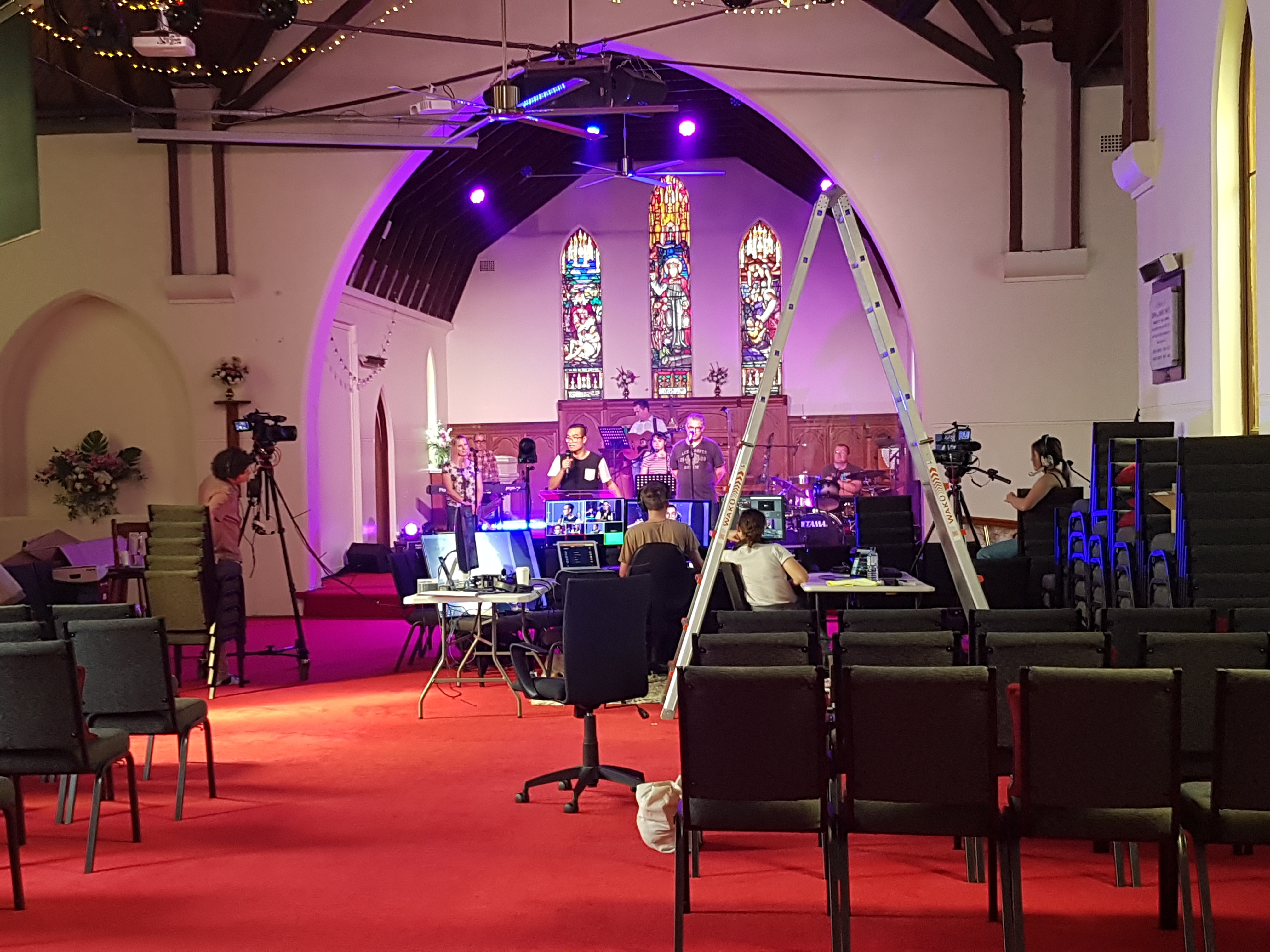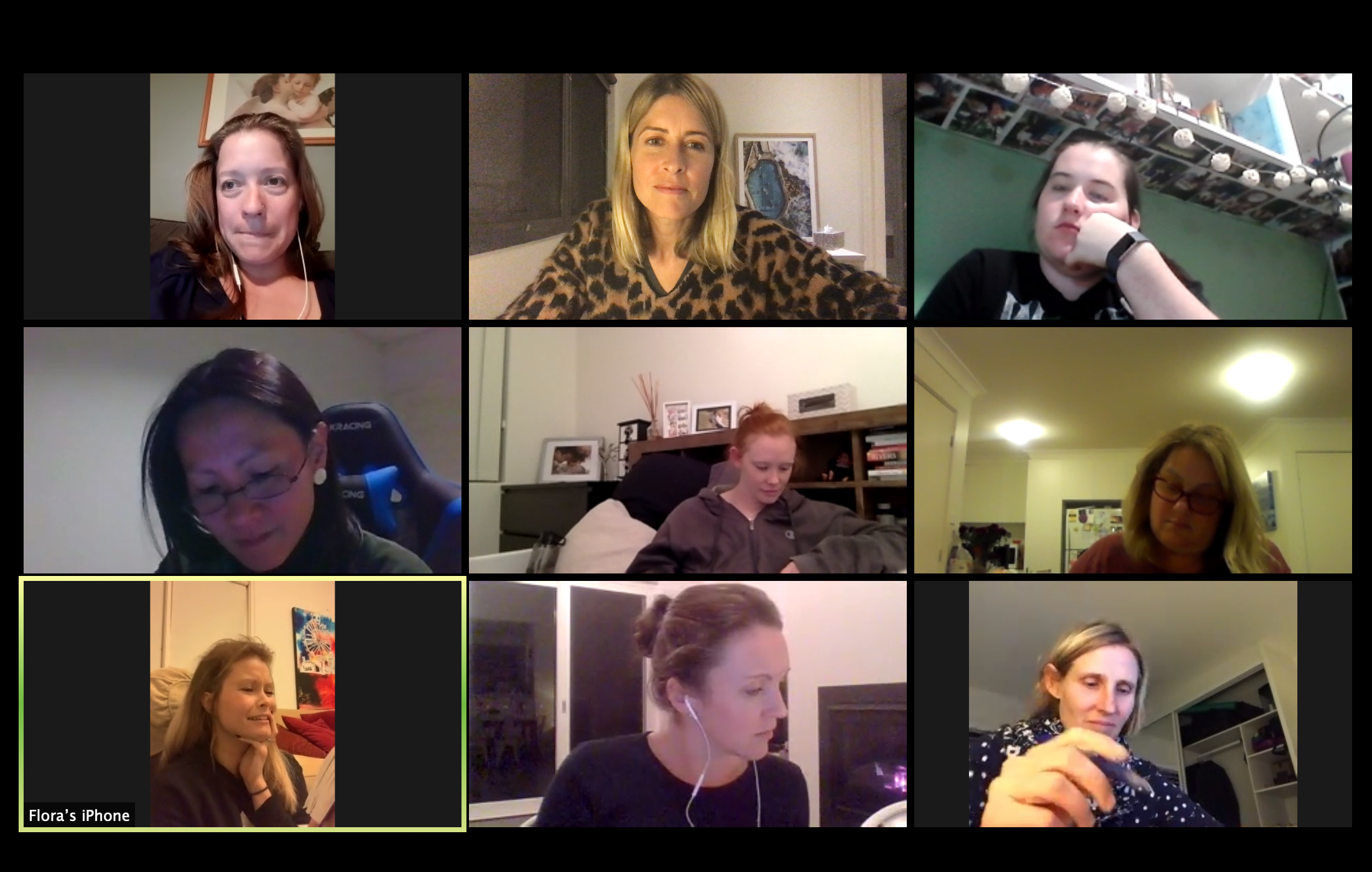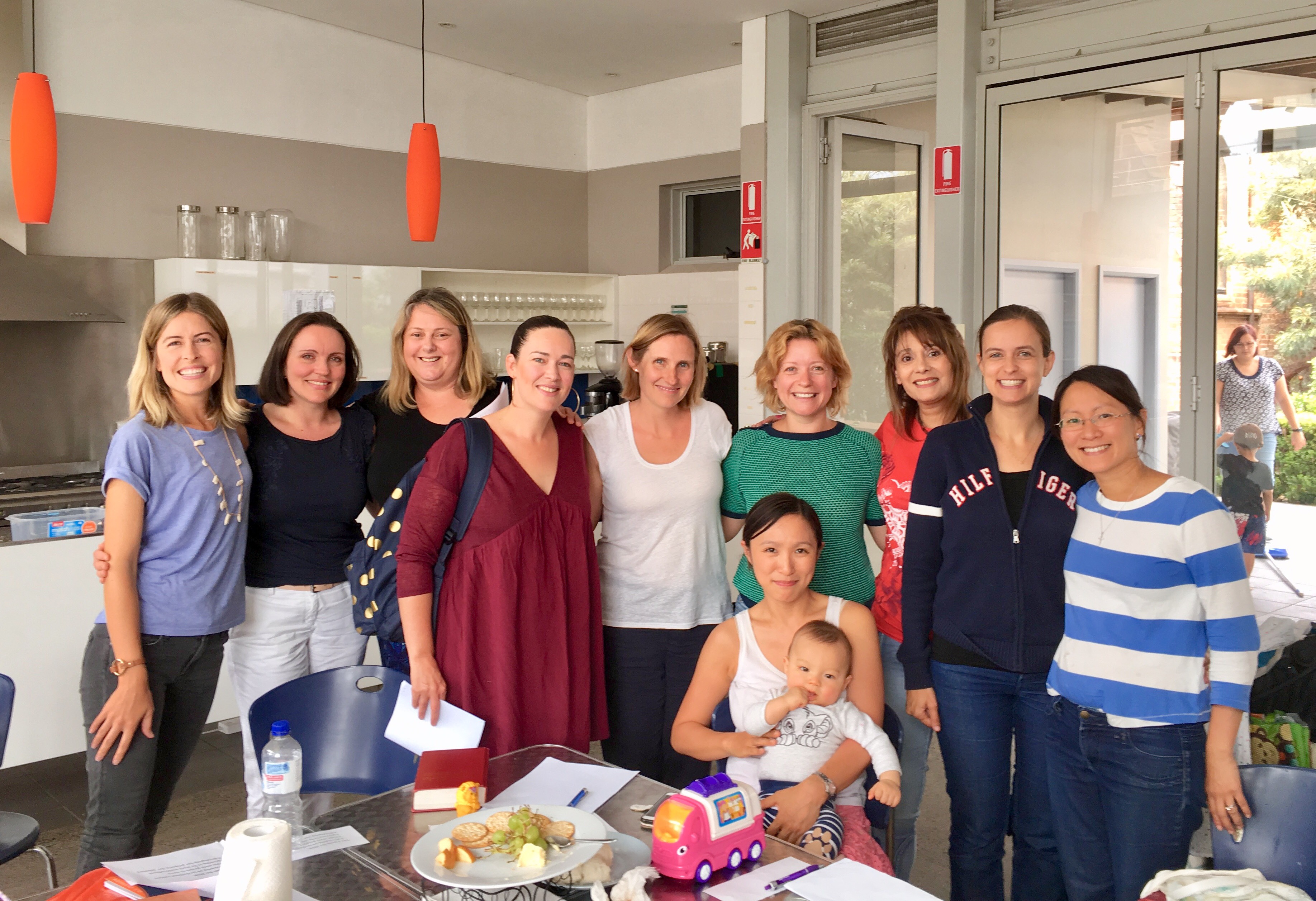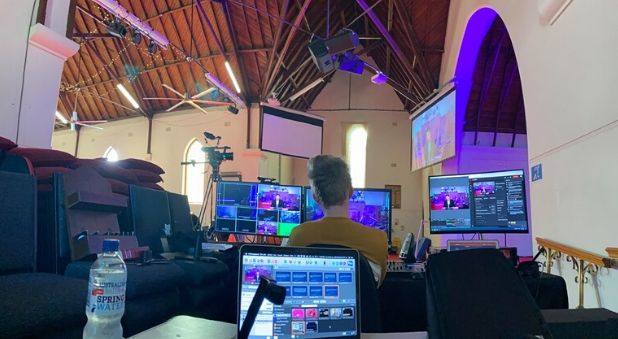Plenty of people can’t wait to get back to a fully face-to-face Christian life, but that doesn’t mean we should jettison all the technological work we’ve done over the past four months. In fact, there are a number of parishes in the Diocese that are doing just the opposite.
Thanks to a group of digital natives at Park Road Anglican in South Carlton, a high-quality livestream of services was possible all the way through lockdown – and the plan is to continue this after in-person services return to “normal”.
“With the livestream, we’ve been amazed by the reach and the ease with which people from church are able to invite people to check church out,” says rector the Rev Gary Bennetts.
“Our approach has been to make the stream as much like Sunday church as possible, and there seems to be a good level of appreciation [from] church folks, friends of church people and other contacts.”

He agrees with public comments that people’s use of the internet post-COVID will undergo long-lasting change. When he combines that with the increased access for people who don’t normally attend church, it’s a no-brainer for Mr Bennetts to see funds and effort go into livestreaming at Park Road.
“Ministry has taught me there is more genuine faith out there in the community than perhaps church attendance accurately reflects,” he says. “And there are significant reasons why some people can’t come to church – disability, sometimes mental illness, sometimes things like children’s behaviour issues. There are people who would love to come to church but simply can’t.”
“[Livestreaming] might be the best outreach tool we’ve ever had”.
Livestreaming of services has also been a roaring success at Jamberoo, near Kiama. Rector the Rev Jodie Mc Neill plans to continue it indefinitely, saying, “It might be the best outreach tool we’ve ever had”.
“The stats for our Facebook Live were higher this past weekend when ‘open’, than a month ago with closed doors,” he says. “There are just lots of people who continue to watch.”
He agrees with Mr Bennetts that continuing to livestream services makes it easier for members who otherwise wouldn’t be able to attend, but adds that it has also provided opportunities for extraordinary community engagement.
“I was down with the [volunteer RFS], chatting to one guy, and he said, ‘Are you still going through Revelation?’ – so they’re watching! The other day I was at Maccas in Fairy Meadow [half an hour north of Jamberoo] and this guy says to me, ‘It’s Jodie from Jamberoo! I’ve been watching you on Facebook!’ There are all these connections. That’s very exciting.”
Engaging with the word and prayer
At Blacktown, rector the Rev Luke Thomson decided he might as well take advantage of the fact church members were spending more time in front of their screens during lockdown. He set up an online visual aid he christened “Bible-ology” to help people unpack the passage of Scripture linked to each week’s sermon – and says it has worked so well he plans to keep using it.
“We encouraged Bible studies to use [Bible-ology] to guide their group as they met online, and had some discussion questions as part of that process,” he says.
“It meant we could go deeper in the text than we normally would, having that second bite for people to engage with it. It also meant that others who aren’t in a Bible study group have engaged more with the text before the Sunday sermon than they normally would – and for a book like Habbakuk that was especially useful!
“It was really well received, so we would look to keep doing it for some sermon series in the future.”
The Rev Peter Stedman from Norwest Anglican has already decided the weekly video of news from the parish (and around the world) will continue post-COVID. And while the church reopened its doors on June 21 he says that, for the moment, the Q&A after each sermon will still continue online by text or through the Facebook feed – depending on whether the questioner is sitting in the church building or on their couch.
...the Q&A after each sermon will still continue online by text or through the Facebook feed.
Another online success that will continue in a number of churches is prayer. At St Michael’s Cathedral in Wollongong, for example, its next “prayer summit” – held on the first Wednesday of each term – will work a little differently.
For each summit Bible study groups are asked to attend one of the four prayer time slots instead of meeting for a study. In third term, however, the Rev Canon Sandy Grant expects to offer two of the time slots online, as he has found that Zoom prayer meetings work well.
“We have certainly found them helpful,” he says. “You could update a document for the Coronavirus prayer meetings, update it with prayer requests that come in… share your screen [and] update it live

“Longer term I could envisage the early morning [group] always meeting via Zoom – you don’t have to get out in the cold and travel. You can either get to your workplace early or do it from home.”
He adds that a number of people in his parish with hearing difficulties have been “surprised to discover that they love Zoom meetings. They can see people’s faces and generally hear them much more clearly… At a prayer meeting people put their heads down and they don’t project their voice – it’s an ongoing problem and Zoom often helps address that.”
Studying together, apart
Then there’s Bible studies. Many groups have returned to meeting in person, but that’s not what everyone wants. It’s also not what everyone can do.
The Rev Tim Clemens from Grace City Church in Waterloo says that when COVID sent all their small groups online, some people who hadn’t been in a group suddenly asked to join. These included parents of young children, a woman undergoing chemotherapy and members who had physically moved away but were now able to continue connecting online.
“... several people have expressed an interest in finding out more about the online-only [Bible study] groups.”
“Now that we’re starting to talk about resuming physical gatherings, we’re forced to consider whether to continue the online groups or not,” Mr Clemens says.
“We sent out a survey to our church yesterday asking people about their readiness to regather in a variety of different contexts, including community [Bible study] groups and, interestingly, several people have expressed an interest in finding out more about the online-only groups.”
At All Souls’, Leichhardt, Katie Stringer leads a women’s group that morphed from face-to-face on Thursday mornings to Wednesday evenings on Zoom as a result of COVID. With school-age children at home, many members simply weren’t able to focus on the study at the same time as supervising their kids’ at-home learning.

She says making the time change hasn’t suited everybody, but “one of the great joys is that we have picked up three people who wouldn’t ordinarily be able to get to a group… For us there have been a lot of positives.”
The group, which includes women from university age to their 40s, has been diligently working its way through the 50 chapters of Genesis. Ms Stringer has sought to stave off Zoom fatigue by including visual aids and videos, and creating a chat box in their WhatsApp group for members to “talk about things that have stuck with us in the study, things we want to pray about… and often we’ll also send a picture”.
Ms Stringer loves meeting together in person and knows some members would be very keen to get back to how things were. At the same time, she’s aware that the combination of COVID care and winter is likely to see some kids with symptoms that will keep them at home.
“It’s much more realistic to think that we’ll get consistent Bible time happening online – and maybe having some social time one-to-one because we’re a bit freer to do that,” she says.
“There are so many pluses. If you’re not having a great day and you’d really need to ‘psych’ yourself up to go out, it’s not that hard because you can just log on. There’s just a little bit less pressure in that respect, which is definitely a good thing right now.”























